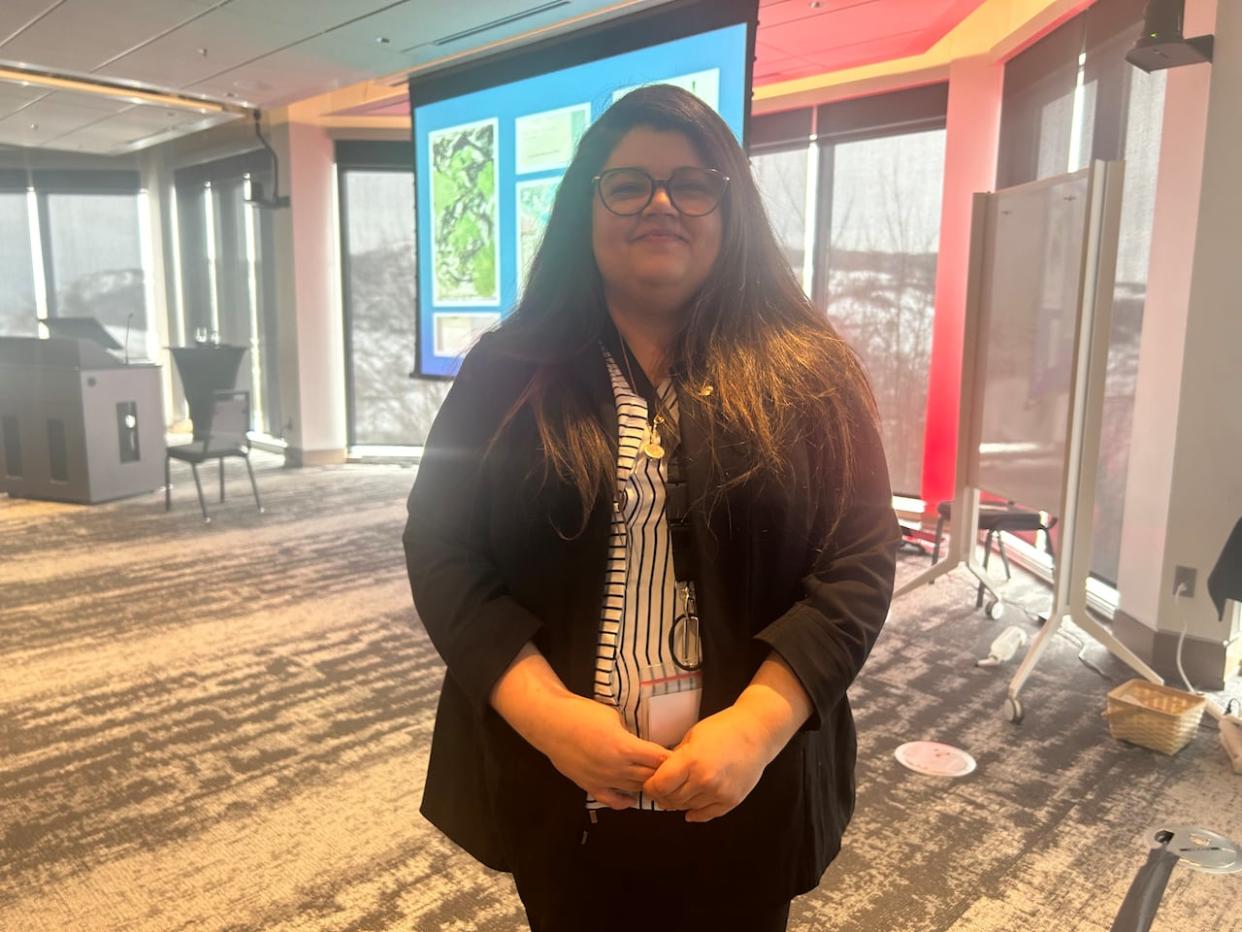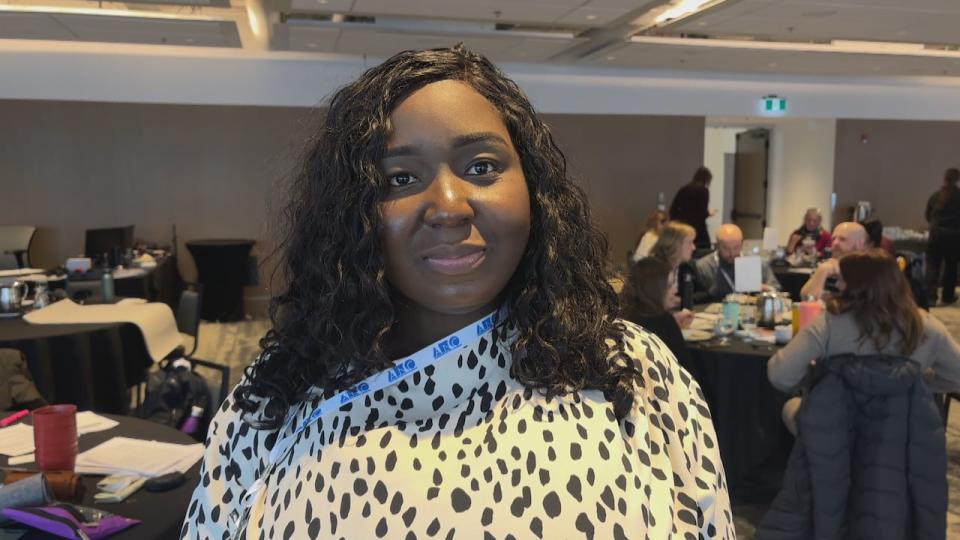Here's what human trafficking looks like in N.L., according to those who help fight it


Monica Abdelkadar, the Association for New Canadians’ director of settlement and resettlement services, says human trafficking takes many forms in Newfoundland and Labrador. (Ife Alaba/CBC)
On a day that intended to spread awareness of the crime of human trafficking, a team at the Association for New Canadians says it can come in many forms.
Feb. 22 is Human Trafficking Awareness Day, first observed in Canada in 2020. The ANC hosted a summit Thursday to highlight what human trafficking can look like in the province.
Monica Abdelkadar, the association's director of settlement and resettlement services, says human trafficking can be defined as any instance where someone is being coerced and exploited — such as newcomers who marry someone in the province and are prevented from leaving their home.
One kind of trafficking the ANC deals with provincially is labour exploitation, said Abdelkadar, including "people who have been forced to pay back recruitment fees or people who have lost all of their labour rights or their human rights in the process of migration."
Abdelkadar said it's hard to keep statistics on the number of cases of trafficking in the province — sometimes because people are afraid to speak about it — but said the association has dealt with 10 cases in the past year that have required police intervention.
The association launched the Support, Empower, Access project in 2019, after an influx of refugees to Newfoundland and Labrador shared their experiences of human trafficking, and works with communities across the province to educate service providers who work with newcomers.

Geraldine Ankrah, the head of the association's anti-human trafficking project, says elements of the temporary foreign worker program can put migrant workers in vulnerable positions. (Darrell Roberts/CBC)
Project head Geraldine Ankrah said much of the trafficking they've seen has been connected with the federal temporary foreign worker program.
She'd like to see changes to closed work permits, which tie people to a single employer and can put migrants in vulnerable positions.
She says there have been instances where migrants have been threatened with deportation by their employer.
"While we are not saying it's a bad program, there are some policies attached to it that make it easy for immigrants to be exploited," Ankrah said. "There must be more stringent measures, or more ways to monitor employers to make sure they're doing right by the immigrants. And treating them just how they would treat any other Canadian citizen or permanent resident."
Varka Kalaydzhieva, a visiting program director of the Sisters of St. Joseph in Toronto and the Collaborative Network to End Exploitation, held a role-playing workshop that aimed to teach people what migrant workers who came to Canada may experience.
"We want to outline and highlight the policies and the structural gaps that are making people vulnerable to be exploited," she said.
"It's not the workers, it's not who they are, it's not from where they're coming.… It's the way Canada creates their immigration and labour policies that [facilitates] the vulnerability of workers when they come to Canada."
Anyone who believes someone is being exploited or is a victim of human trafficking can call the National Human Trafficking Hotline at 1-833-900-1010.
Download our free CBC News app to sign up for push alerts for CBC Newfoundland and Labrador. Click here to visit our landing page.


